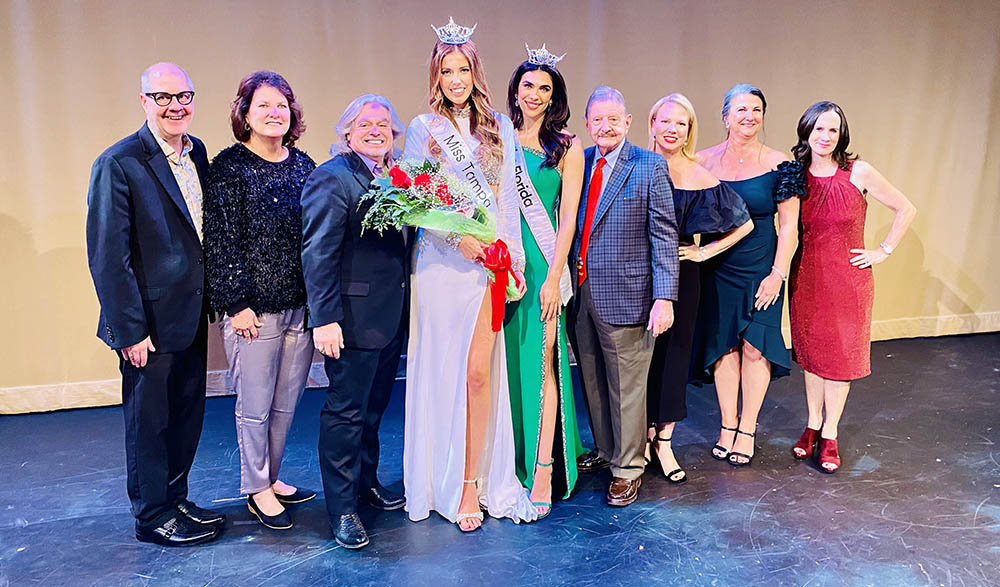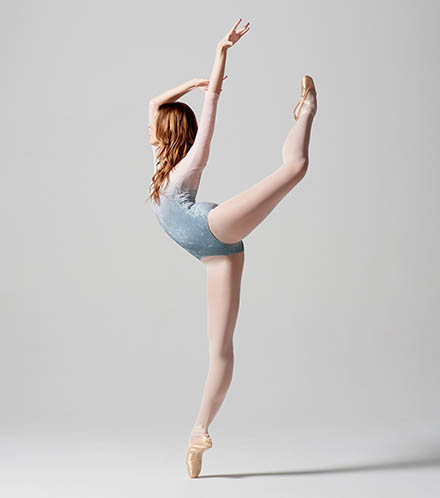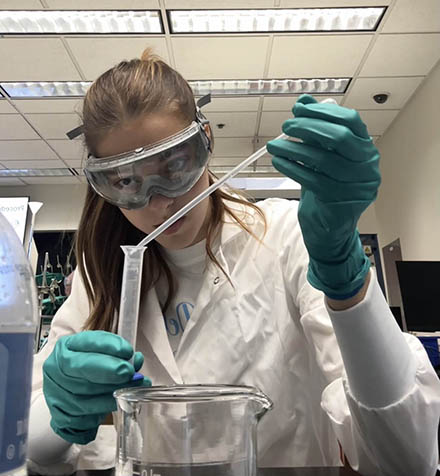By Paul Guzzo, University Communications and Marketing
Alexandra de Roos seemed poised for a career as a ballerina.
But, due to a concussion, doctors advised her to give up on that dream.
“I didn’t know what to do with myself,” de Roos said. “Then, I realized, I love helping people too.”
The 21-year-old now seeks to assist others with brain trauma.
A sophomore in the University of South Florida’s Judy Genshaft Honors College, de Roos is a double major in biomedical sciences and psychology with the goal of becoming a neuropsychiatrist and running a post-concussion syndrome rehabilitation clinic.
Meanwhile, she currently serves as an advocate for brain trauma awareness.
Her pulpit just got bigger.
On Feb. 1, de Roos was crowned Miss Tampa – a local competition for the Miss Florida competition that sends a winner to the Miss America contest.
“Service is an integral part of being a titleholder,” she said. “One of my primary goals throughout this year is to educate as many people as possible on brain injuries and why they always need to be taken seriously.”

USF student Alexandra de Roos was crowned Miss Tampa. [Photo courtesy of Jose Lopez Jr.]
De Roos suffered her concussion from what she called “a freak accident.”
While an 18-year-old student at New York City’s School of American Ballet, which serves as a feeder system for the New York City Ballet, de Roos shut the door to her residence hall room too forcefully and it slammed into the left side of her head.
“I was rushing between ballet classes,” she said. “I damaged the frontal lobe and Broca’s Area, the parts of the brain responsible for executive functions and word mapping.”
But she wouldn’t learn that until later. In the moment, all de Roos thought was that she was a little dizzy.
She continued dance training for the next two days before seeing a doctor because the dizziness wasn’t subsiding.
She was then diagnosed with a concussion but returned to dancing a few weeks later.
“I thought everything was OK,” de Roos said. “Most concussions are healed by then, but not all.”

Alexandra de Roos studied at New York City’s School of American Ballet. [Photo courtesy of Rachel Neville]
Concussions are caused when the brain bounces inside the skull. So, as she whipped her head about while dancing, the damage unknowingly worsened.
“Brain injuries are like snowflakes – no two are the same,” she said. “I didn't lose consciousness. I didn't throw up. I didn’t think it was that bad. I didn’t know it could be that bad without those two most common symptoms.”
Over the next few months, she had extreme dizziness and nausea, headaches and sensitivity to light.
“One of the most severe symptoms I experienced was that I would stutter while speaking and would lose my train of thought,” she said. “I often described it as my brain ‘buffering.’”
Also a part-time student at Columbia University at the time, “It got to the point where I would type up papers for school, and the words that were coming out on the page were not what I was thinking,” de Roos said.
That’s when it was suggested she take a break from dancing and start rehabilitation for post-concussion syndrome.
“For a year and a half, often bi-weekly, I underwent customized physical and neuropsychological therapies,” de Roos said. “I had trouble riding a bike for more than two minutes, so we worked on stuff like that. Other times, a therapist would do something like put an X on the wall and I would have to stare at it while shaking my head to retrain my brain.”
But she also thinks having a creative outlet helped with the recovery.
“Low stress is important to healing,” de Roos said. “I was stressed. The stress was due to losing the opportunity to pursue my professional ballet career, not functioning at the high mental and academic levels I was accustomed to. I was only focused on recovery.”
As a kid, she was a mentee in the Miss America's Little Sisters Program that has pageant contestants mentor girls. She later won Miss Gainesville’s Outstanding Teen in 2020.
“I grew up watching Miss America,” de Roos said. “My mom grew up watching Miss America. We both fell in love with the program.”

Alexandra de Roos is majoring in biomedical sciences and psychology [Photo courtesy of Alexandra de Roos]
So, when de Roos’ mother saw her sinking into a post-ballet depression, she suggested that her daughter return to pageants.
“My mom wanted me to be involved in something creative,” de Roos said. “She said that I had to do something because otherwise I was not going to be OK. I still wasn’t sure if I could do it, but I gave it a try.”
She won, repeatedly.
In 2022, de Roos was named Miss Emerald Coast.
A year later, she became Miss Gainesville and then Miss Winter Haven the next.
For the talent portion, she dances with choreography deemed safe for her brain.
But doctors have warned that the intensiveness of professional ballet might trigger her post-concussion syndrome and cause more damage.
“It’s not worth the risk,” de Roos said.
De Roos sometimes wonders if things would have turned out differently had she taken her concussion seriously sooner. So, during each of her year-long pageant reigns, warning others to do so has been her cause.
She also founded The Blue Project: Integrating Neuroscience and the Arts, Inc., a nonprofit that promotes how the arts can help heal brain trauma. And she advocates for the Brain Injury Association of America and partners on endeavors with Brain Injury Florida.
The Miss Florida Pageant is in June. While de Roos hopes this is the year she wins, it’s not so much the prestige she seeks, but the larger platform that would come with the title.
“This is something I am passionate about,” she said of brain trauma awareness. “I just want to help people.”
